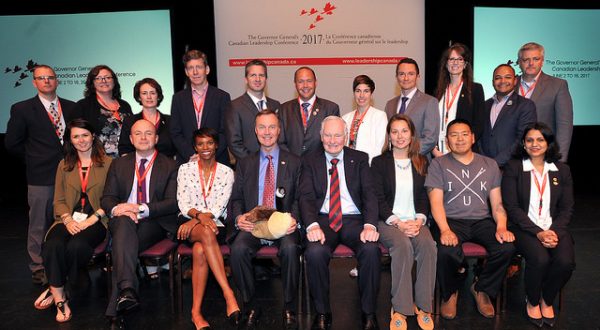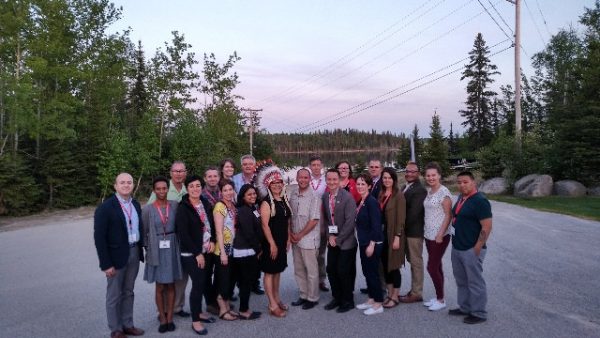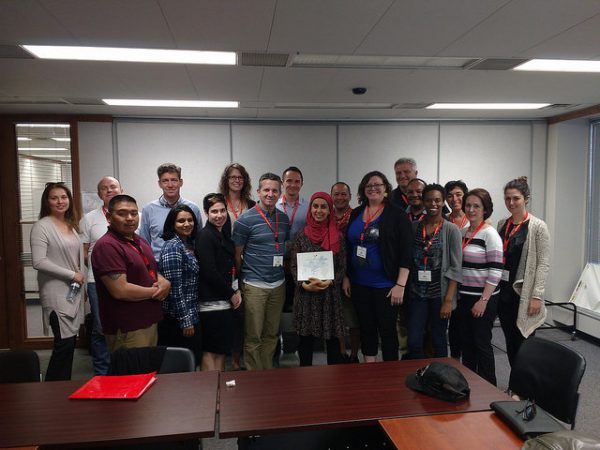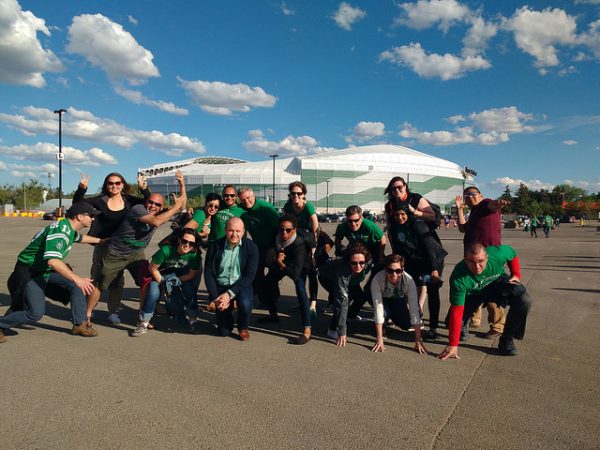From June 2nd to 16th, Darran Fernandez, Associate Registrar and Director of Student Support & Advising, was part of the 250 people chosen to participate in The Governor General’s Canadian Leadership Conference. The Conference began in 1983 as a way to bring leaders from across the country together towards the goal of building Canada. Participants have backgrounds in a variety of sectors such as business, labour, government, academia, community, and cultural. They are brought together to share their unique perspectives and facilitate interaction and dialogue between leaders from these diverse sectors, as well as deepen their understanding of Canada through the study tour part of the conference.

In between the Opening and Closing Plenaries, nine days are spent on a Study Tour in one region of Canada, ideally one that the individual participant has little experience in. Darran and 17 other participants embarked on a trip to Saskatchewan to tour a number of its industries and cultural/historical sites.
One of the core themes of the conference was “Leadership and the Canada we will Build” and a theme he took away was on how leaders have the opportunity to change the story. During the trip, the group met with a number of community, business, indigenous, and governmental leaders who shared their candid story of Saskatchewan and their own leadership experiences. The group met the co-creator of The Little Mosque on the Prairie who spoke on, as Darran shared during the SSA Lunch & Learn on August 9th, “how individuals impact stories… our different identities inform how we act [on certain topics] and it’s a good thing; it’s good that we have these different lenses that come to the table but we don’t always appreciate the fact that there are other lenses at the table. So there’s an importance to being conscious of the different perspectives that are shared.”

During his presentation, Darran spoke of the rewards and challenges of being grouped together with 17 other people of varying backgrounds and the very full daily schedules that taught him to run on four to five hours of sleep for nine days. He reflected on a memorable day where “we went to this gallery and we thought we were just going to see some artwork before visiting a local casino and speaking with their CEO, and…we ended up having this experience at the gallery where local Elders came in and shared their life experiences with us – sharing stories of their experiences with the residential school system, systemic racism and feeling a lack of voice in their own community. That rattled me. And then we’re meant to switch out of that mindset and go and talk to someone about the role that casinos play in supporting the community.” There was great diversity in each day that required participants to be okay with the emotional roller coaster and the diversity of conversations had.

When asked if he could see himself changed, even in the everyday, after this trip, Darran noted that, “because I [didn’t] have time to think about an answer to something over the course of those 16 days, whatever was in my head had to come out of my mouth. I had to hinge on the fact that likely your gut is right on that front, so I might be more reliant on that than [I was] previously. I’m usually structured or calculated in my verbiage. So I think now the rawness might be more present. So much of this experience was out of my comfort zone. I learned how to be comfortable with being uncomfortable. If I learn how to be comfortable with being uncomfortable in my work life, I may need to find a way to make sure that those who work with me are also comfortable with that. I need to make sure that people still feel supported, [so] this is something that I’m trying to be more conscious of. I don’t doubt that a part of me has fundamentally changed.”

In terms of how the experience has changed his perspective on his work life, Darran said, “I do want us as an organization, as a unit, to talk more about what developing a greater knowledge base of our history as a country can do for us in understanding the history of our Indigenous peoples of Canada, and what it means for us to take that lens into our work.” Darran shared how grateful he felt for the opportunity to participate, but feels a great deal of responsibility that comes with paying it forward – how, he’s still figuring that out.
